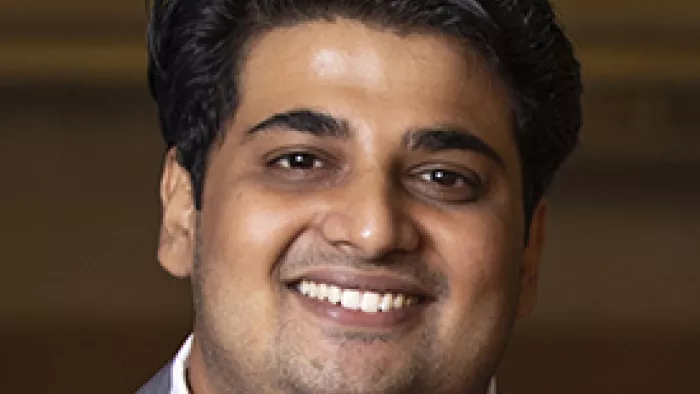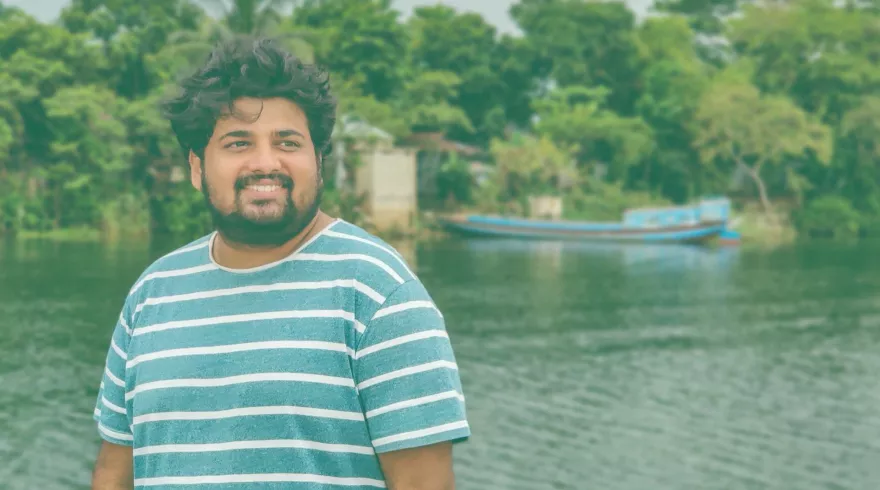
Change maker: Open
Jahin Shams, Uttaran / Bangladesh (Satkhira)
I am Jahin and I work in an NGO called Uttaran in Bangladesh. My role in this organisation is as a programme development specialist, so I write and I also manage my programmes. Some of the programmes are particularly related to climate change and environmental disaster, so that was how I got involved with Start Network. At the moment, I am based in the southwest part of Bangladesh, which is near the coastal part of Bangladesh. I am Start Network's Change Maker in the category of Open and I am really honoured to receive this award.
Dhaka is a densely populated city, it’s probably one of the most densely populated cities in the world with more than 22 million people living there and another few half a million coming in and out every day. It is sometimes nominated the most polluted city in the world. I grew up in the coastal region of Bangladesh, so it feels good to be able to come back, breathe the fresh air, and give something substantial back to the community.
During my undergraduate days, I started working as a volunteer for Uttaran. Being a local organisation, Uttaran had a lot of free stuff, but didn’t have a lot of people who could drive the things that they were doing. So, being a private university student, I could write well in English and I decided to begin writing for them. That's how it started.
When I started writing, I saw that there were lot of things that we could improve on so, after I finished my undergraduate degree, I joined as a programme officer. Because we were working in disaster-prone areas, we commonly faced cyclones, flooding, water logging, and river bank erosion. Every day was a new disaster, so you have to be involved in this. My parents taught me that most important thing in life is integrity and that is what I try to bring to my work.
I have been involved with Start Network for a couple of years now. In 2019, our organisation was selected to be a part of Start Fund Bangladesh. So in terms of any localised disasters, we can raise an alert. Being an environmental sciences student, I started writing proposals for Uttaran. When designing proposals, I try to ensure that I am doing so in a way that other people can submit their projects. I coordinate, I openly tell other agencies that I am going to a sponsor, "please, let's agree, let us divide areas so that there will be no conflicts, there will be no overlapping."
I have also helped other small local organisations to participate in this. I have helped them and made sure that their areas are more competent, and I have openly asked others to help younger organisations and give them a chance. We are a network, it's not only about money – but about growing together and contributing to the humanitarian sector.
In any situation, organisational staff can be derailed. For example, they can be involved in corruption. These kinds of things can happen, but it's up to the organisation or to the people who are involved to come out and say it, because if you don't say it, the organisation is hurt more.
An incident happened within one of our projects and I was the first person to respond to this. I told the media about it and I went to donors. I told everyone and wrote a report. I wrote it seven days before filing the station report and took actions. It was well appreciated and this is seen as an example of how transparent an organisation should be because these things happen, no one has control over such things. I openly said "okay, this is what has been done. This is what we need to do" and it was very well appreciated throughout the humanitarian sector in Bangladesh. It actually landed me couple of more projects for being transparent. It started with the fact that integrity is my core strength.
This article is based on an interview conducted by A Good Day in Africa. Listen to the full interview below.

